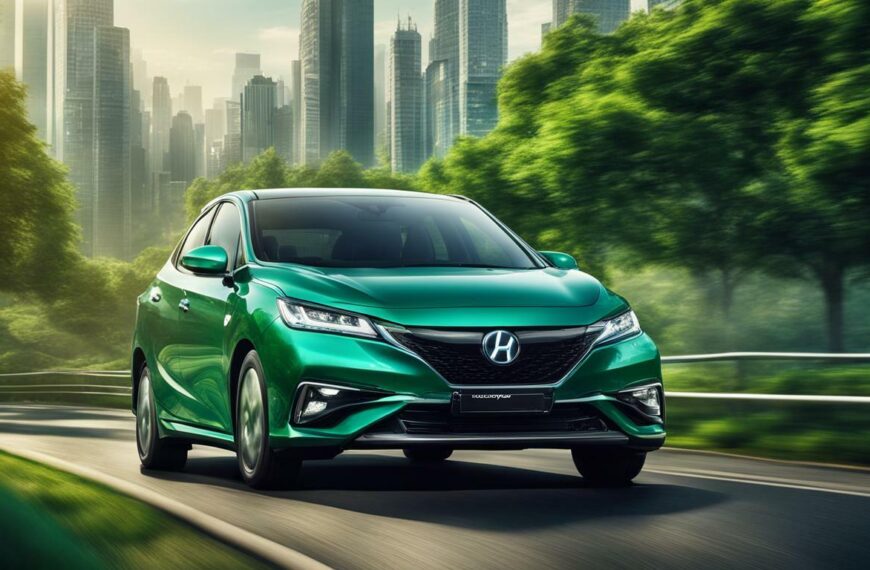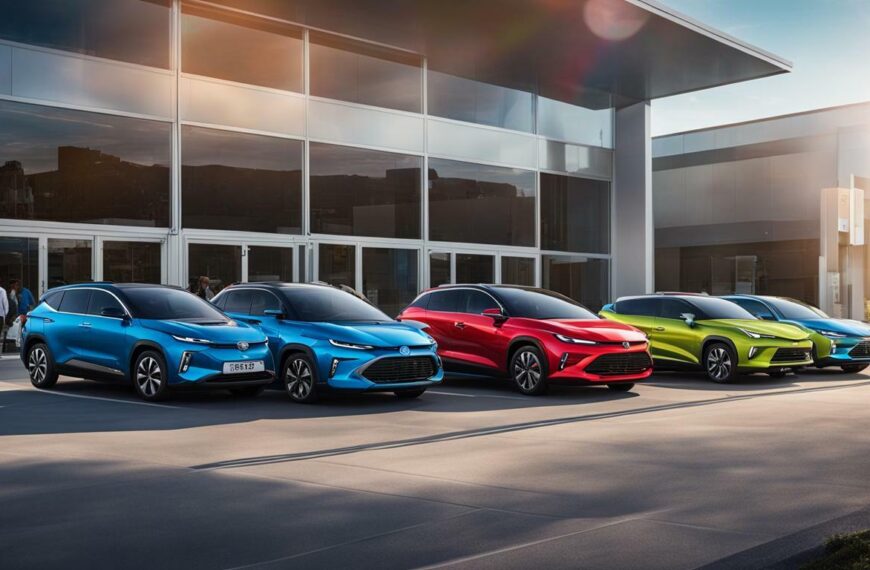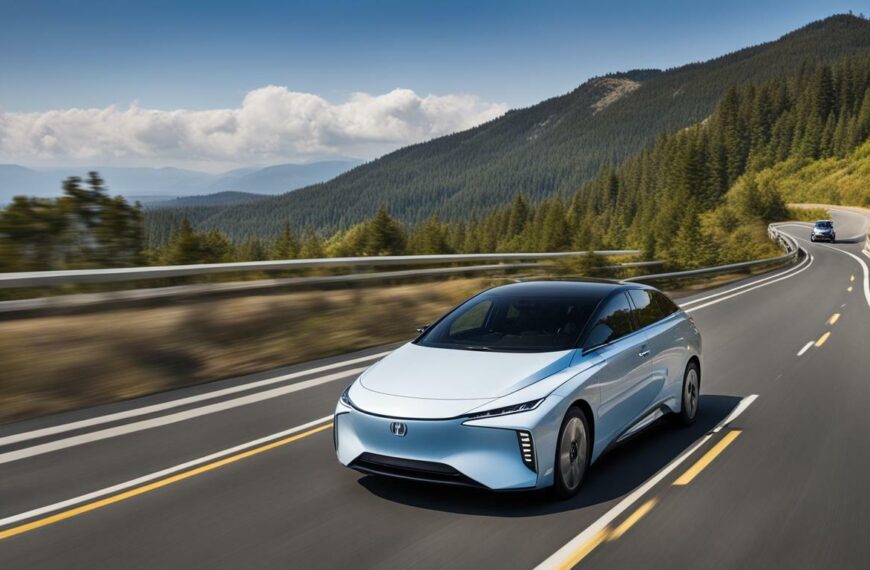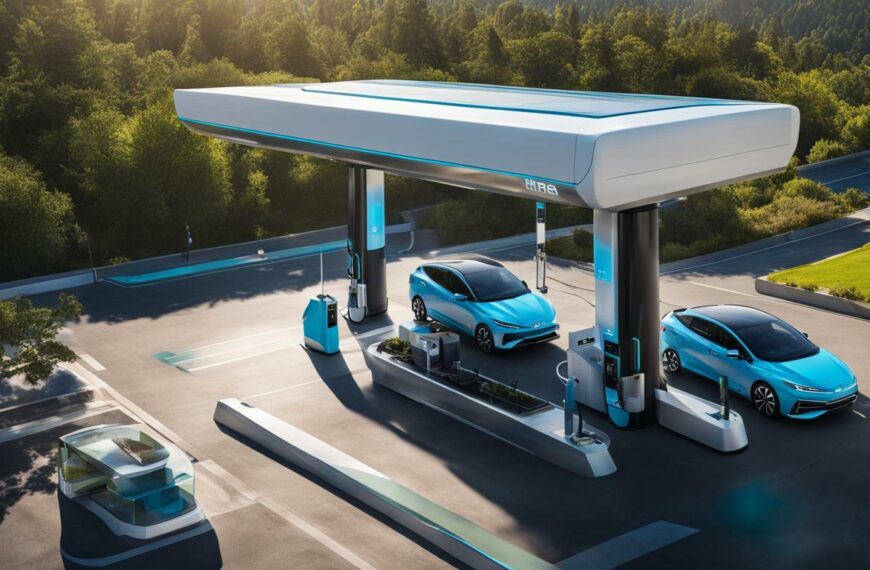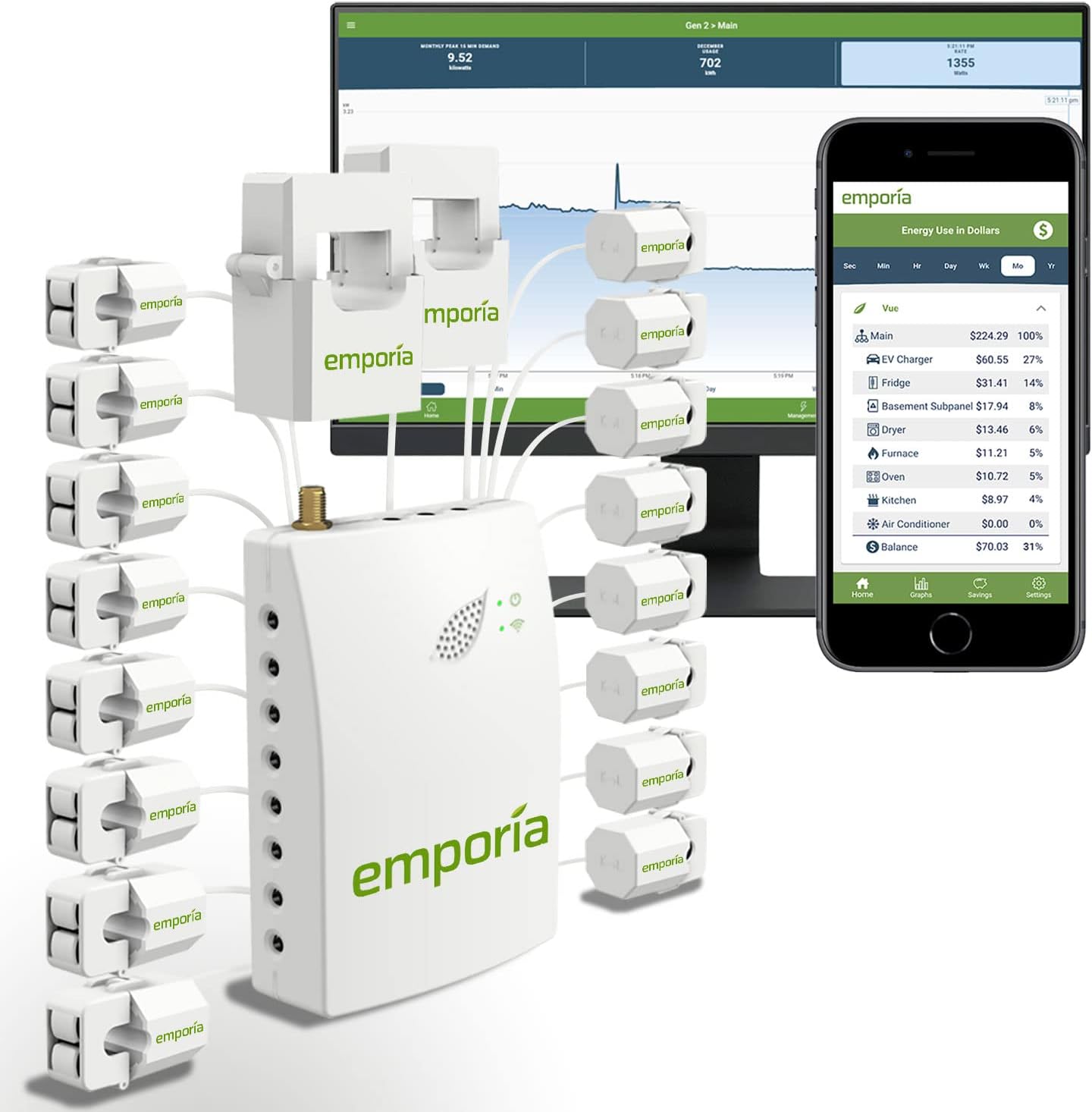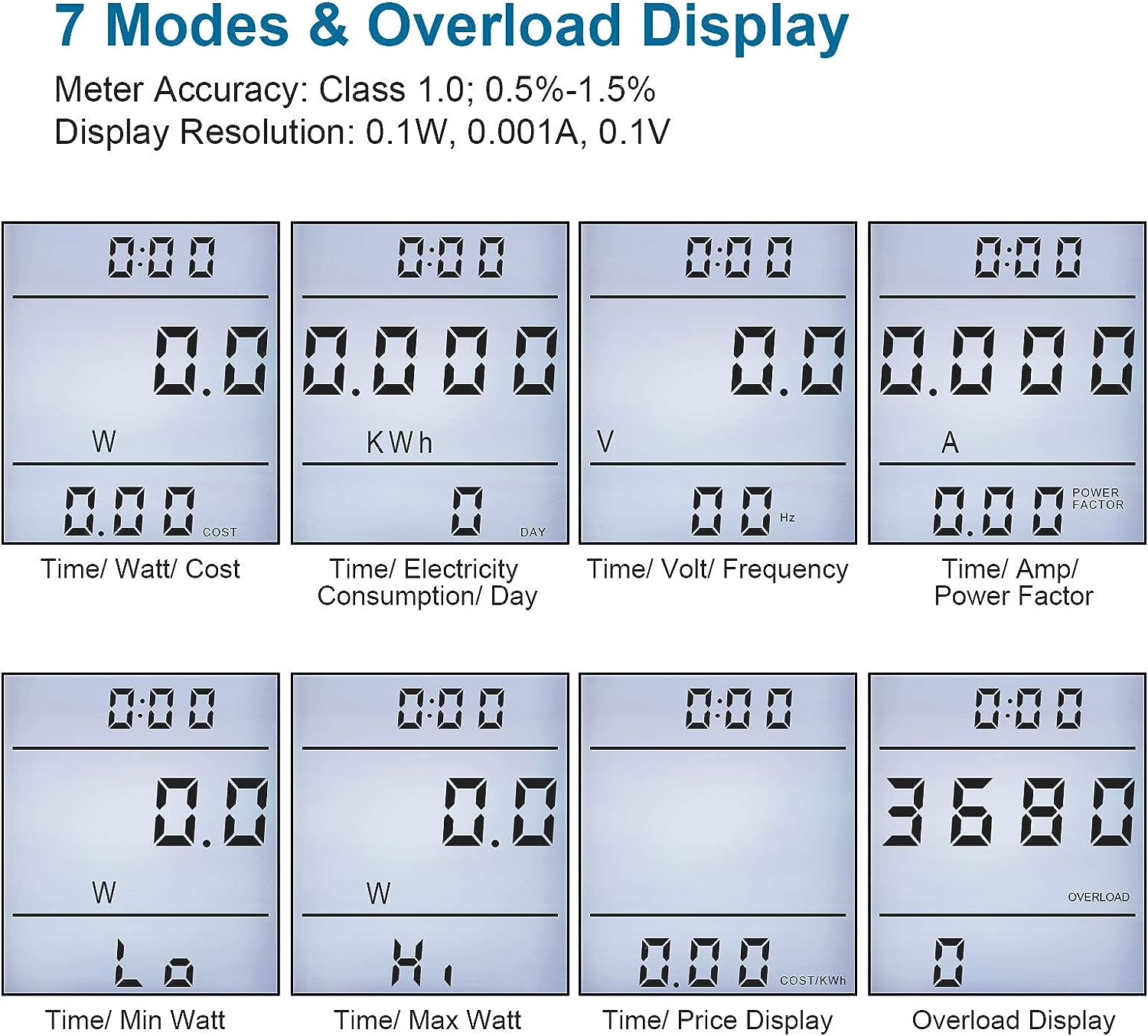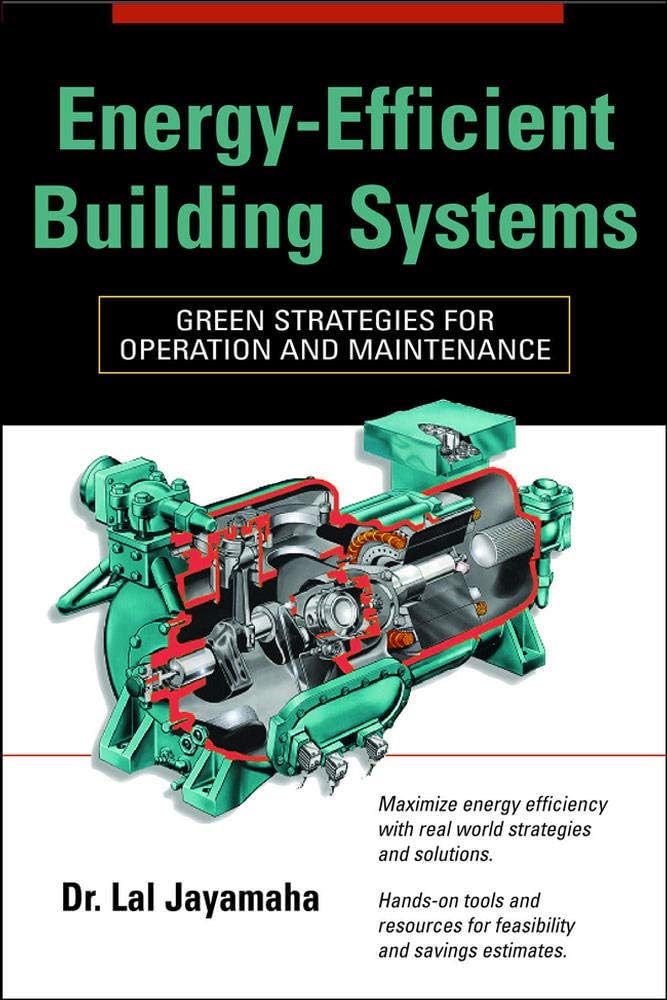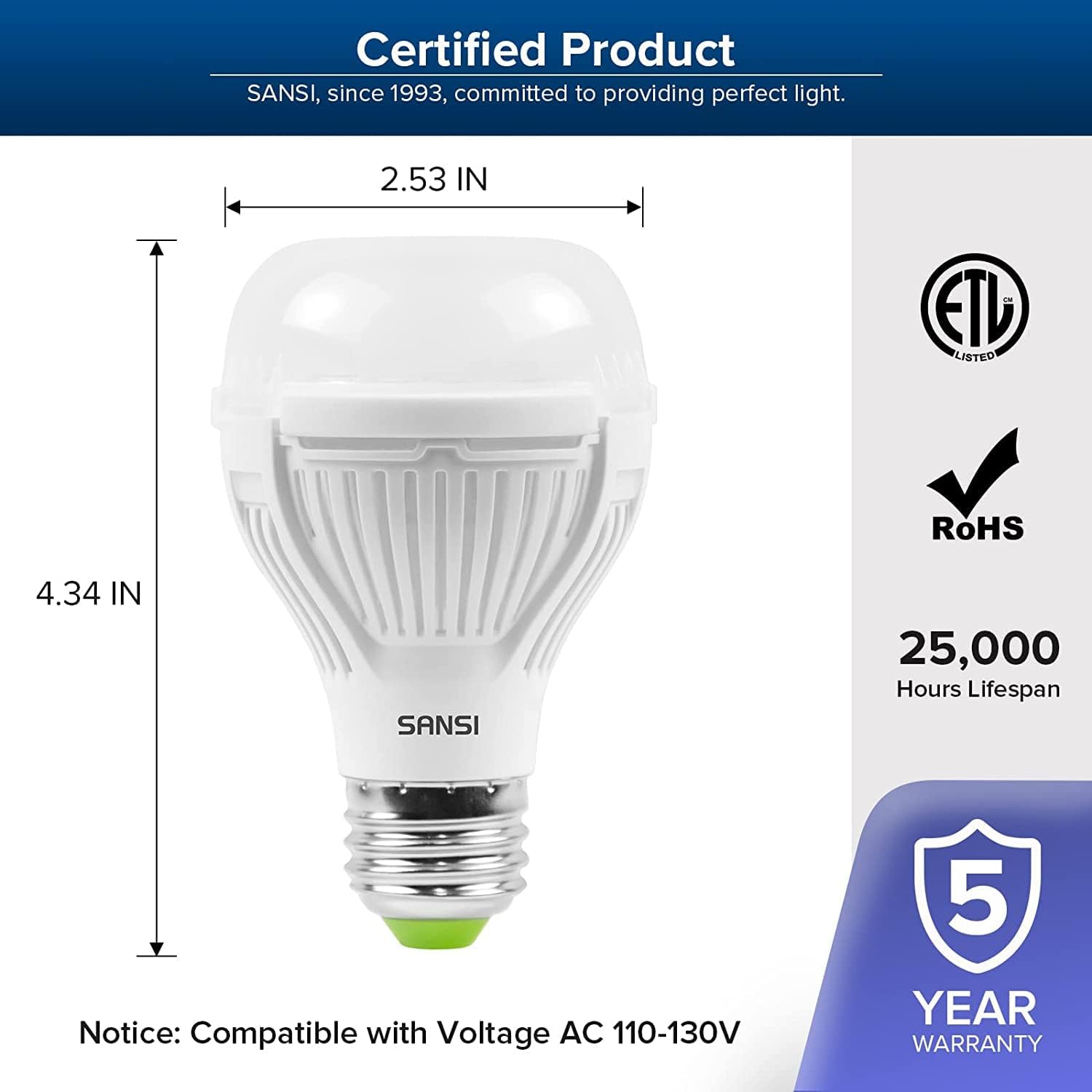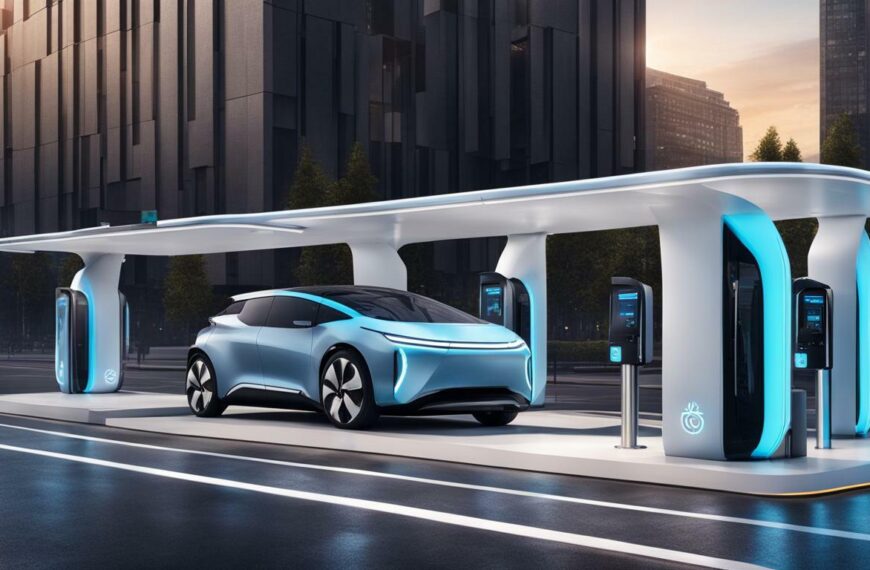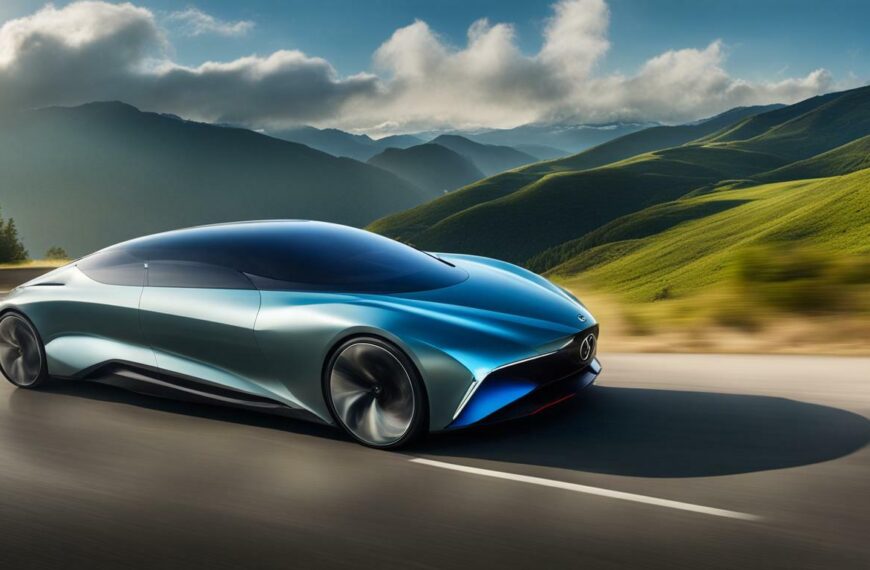Hydrogen is emerging as a promising alternative abundant fuel source source, offering a clean and renewable option for various industries. This versatile element has the potential to revolutionize sectors that are hard to electrify, such as long-range road transportation, aviation, and maritime shipping. While challenges regarding production cost and infrastructure development remain, the advantages of hydrogen fuel are undeniable.
One of the major benefits of hydrogen fuel is its high energy density, which allows for efficient energy storage. Unlike traditional lithium batteries, hydrogen provides a much higher energy capacity, enabling longer travel distances and extended operating times. In addition, hydrogen fuel cells offer quick refueling times, making them a practical solution for time-sensitive industries.
Hydrogen also has the unique ability to store renewable energy. As renewable energy sources like wind and solar power become more prevalent, finding ways to store excess energy for later use is essential. Hydrogen fuel cells can absorb and store this energy, offering a reliable and sustainable solution.
Commercial applications of hydrogen are already in progress, with industries utilizing it for industrial processes and experimenting with hydrogen fuel cell vehicles. Leading manufacturers like Toyota and Honda are spearheading the development of these vehicles, showcasing their commitment to a greener future. Furthermore, the establishment of hydrogen refueling stations in California and the Northeastern United States is a clear indication of the growing infrastructure to support hydrogen-powered transportation.
However, the auto industry remains divided when it comes to the future of hydrogen fuel cells versus battery-powered electric vehicles. While both options have their merits, the debate continues as to which technology will dominate in the long run. Additionally, concerns about the high cost of hydrogen fuel and safety issues surrounding its storage and transportation are areas that need further exploration and resolution.
Despite these challenges, hydrogen has the potential to play a significant role in decarbonizing the transportation sector and reducing greenhouse gas emissions. As countries worldwide aim to transition to more sustainable energy solutions, hydrogen offers a clean and renewable option that can help achieve these goals.
Key Takeaways:
- Hydrogen is emerging as a promising alternative fuel source for industries that are hard to electrify.
- Advantages of hydrogen fuel include high energy density and quick refueling times.
- Hydrogen fuel cells have the ability to store renewable energy, making them a sustainable solution.
- Toyota and Honda are leading the development of hydrogen fuel cell vehicles.
- Increasing hydrogen refueling stations in California and Northeastern United States demonstrate growing infrastructure support.
The Power of Hydrogen Fuel Cells
Hydrogen fuel cells are revolutionizing the way we think about energy, providing an alternative and sustainable power source for a wide range of applications. These fuel cells, which convert hydrogen and oxygen into electricity, produce zero emissions and offer numerous advantages over traditional combustion engines. With their ability to deliver clean and efficient energy, hydrogen fuel cells have the potential to transform industries that are hard to electrify, such as long-range road transportation, aviation, and maritime shipping.
One of the key advantages of hydrogen fuel cells is their high energy density. Compared to conventional batteries, which have limited storage capacity, hydrogen fuel cells can store a large amount of energy in a relatively small volume, making them ideal for applications with high power demands. Additionally, fuel cell vehicles can be refueled quickly, similar to traditional gasoline-powered vehicles, providing convenience and reducing downtime.
Moreover, hydrogen fuel cells offer the unique ability to store renewable energy. Excess energy generated from renewable sources like solar and wind can be converted into hydrogen through electrolysis and stored in fuel cells for later use. This not only helps with grid stabilization but also enables a more sustainable energy system by utilizing renewable sources more effectively.

- Zero emissions: Hydrogen fuel cells produce only water vapor as a byproduct, making them environmentally friendly and contributing to a cleaner future.
- Efficiency: Fuel cells have higher energy efficiency compared to combustion engines, resulting in reduced energy waste and improved overall performance.
- Versatility: Hydrogen can be sourced from a variety of feedstocks, including water, biomass, and natural gas, making it a versatile fuel option.
- Longevity: Fuel cells have a longer lifespan compared to traditional batteries, making them a reliable and durable energy solution.
In conclusion, hydrogen fuel cells hold great promise as an alternative energy source, offering a sustainable and efficient solution for various industries. While challenges remain in terms of production cost and infrastructure development, ongoing advancements and investments in hydrogen technology are paving the way for a future powered by clean and renewable energy.
| Advantages | Hydrogen Fuel Cells |
|---|---|
| Zero emissions | ✓ |
| High energy density | ✓ |
| Quick refueling time | ✓ |
| Ability to store renewable energy | ✓ |
High Energy Density and Quick Refueling Time
With their high energy density and rapid refueling capabilities, hydrogen fuel cells offer a practical and efficient solution for various industries. Unlike traditional batteries, which store electrical energy, hydrogen fuel cells store and generate energy through a chemical reaction between hydrogen and oxygen. This chemical process produces electricity and heat, making hydrogen fuel cells highly efficient.
The high energy density of hydrogen fuel cells means they can store a significant amount of energy in a small space, making them ideal for applications that require long-range capabilities, such as transportation. Whether it’s powering cars, buses, or even aircraft, hydrogen fuel cells provide a reliable and sustainable alternative to traditional fossil fuels.
Another key advantage of hydrogen fuel cells is their quick refueling time. Unlike electric vehicles that require hours to recharge their batteries, hydrogen fuel cell vehicles can be refueled in a matter of minutes, similar to traditional gasoline-powered vehicles. This fast refueling time eliminates the range anxiety often associated with electric vehicles, offering a seamless and convenient experience for users.
To illustrate the high energy density and quick refueling time of hydrogen fuel cells, consider the following example: A hydrogen fuel cell-powered car can travel up to 300 miles on a full tank of hydrogen and be refueled in less than five minutes. This efficiency and convenience make hydrogen fuel cells a compelling solution for industries seeking to reduce their carbon footprint and transition towards cleaner energy sources.
Comparison of Energy Density
| Energy Source | Energy Density (Wh/kg) |
|---|---|
| Lithium-Ion Battery | 150-250 |
| Gasoline | 12,000 |
| Hydrogen (Compressed, 700 bar) | 33,300 |
The table above demonstrates the significant energy density advantage of hydrogen fuel cells compared to lithium-ion batteries and gasoline. While batteries have made remarkable advancements, hydrogen fuel cells still outperform them in terms of energy stored per unit weight. This advantage allows hydrogen fuel cells to provide longer ranges and shorter refueling times, making them an attractive option for industries requiring high energy-demanding applications.

With their high energy density and quick refueling time, hydrogen fuel cells have the potential to revolutionize various industries, offering a clean and efficient alternative to traditional fossil fuels. As we continue to address the challenges associated with hydrogen production and infrastructure development, hydrogen fuel cells remain a promising solution for achieving a sustainable energy future.
The Ability to Store Renewable Energy
One of the key benefits of hydrogen fuel cells is their capacity to store renewable energy, providing a reliable and versatile solution for the integration of intermittent renewable sources. Hydrogen can be produced through the electrolysis of water using excess electricity generated from renewable sources such as wind and solar power. This process allows for the storage of energy in the form of hydrogen gas, which can then be used to generate electricity when needed, acting as a buffer for times when renewable energy production is low or intermittent.
Unlike other energy storage methods, hydrogen fuel cells have the advantage of being able to store large amounts of energy for extended periods without significant energy loss. This ability makes hydrogen fuel cells particularly suitable for applications where power is required continuously or during peak demand periods. In addition, hydrogen can be easily transported and distributed, making it a viable option for remote areas or locations where traditional energy infrastructure is limited.
Harnessing the ability to store renewable energy, hydrogen fuel cells have the potential to revolutionize various industries, including transportation, where long-range vehicles like trucks, buses, and ships require a reliable and dense energy source. By using hydrogen fuel cells, these vehicles can reduce their emissions and dependency on fossil fuels, contributing to a cleaner and more sustainable future. Furthermore, the versatility of hydrogen fuel cells extends beyond transportation, with potential applications in stationary power generation, heating, and industrial processes.

As the demand for clean and renewable energy continues to grow, the ability of hydrogen fuel cells to store renewable energy becomes increasingly valuable. By integrating hydrogen into our energy systems, we can make the most of intermittent renewable sources by storing excess energy for future use. While challenges remain, such as the cost of hydrogen production and the development of infrastructure, ongoing research and technological advancements are steadily addressing these issues. With ongoing developments in the hydrogen industry, the potential for hydrogen as a reliable and versatile energy storage solution is becoming more apparent.
Commercial Applications of Hydrogen
Hydrogen is already making its mark in various industries, with applications ranging from industrial processes to experimental transportation. One of the key areas where hydrogen is being utilized is in the production of ammonia, a crucial component in fertilizers. The Haber-Bosch process, which converts hydrogen and nitrogen into ammonia, relies heavily on hydrogen as a feedstock. This process is responsible for producing the majority of the world’s ammonia, supporting agricultural systems and food production on a global scale.
But it’s not just in fertilizers where hydrogen is finding applications. The transportation sector is also exploring the potential of hydrogen as a clean and renewable fuel source. Experimental use cases include hydrogen-powered trains, buses, and even ferries. These vehicles offer long-range capabilities and quick refueling times, making them suitable for industries that are hard to electrify, such as long-haul trucking and maritime shipping.
Hydrogen is also being used in fuel cells as a power source for various industrial applications. Forklifts powered by hydrogen fuel cells are becoming increasingly popular in warehouses and distribution centers due to their zero-emission and quick refueling characteristics. Additionally, hydrogen fuel cells are being used to provide backup power and energy storage solutions in remote areas and off-grid locations.
The Potential for Hydrogen in Future Industries
As hydrogen technology continues to develop and improve, its potential for commercial applications expands. Hydrogen has the ability to play a significant role in sectors that are difficult to decarbonize, such as heavy-duty transportation and industrial processes. Its high energy density, quick refueling time, and the ability to store renewable energy make it a promising alternative to fossil fuels.
In order to fully realize the commercial potential of hydrogen, significant investments are needed in hydrogen production, infrastructure development, and technological advancements. This includes the widespread availability of hydrogen refueling stations, the development of cost-effective production methods, and the enhancement of fuel cell technologies for improved efficiency and durability.
As research and development efforts continue, hydrogen is poised to revolutionize various industries by providing clean, renewable, and scalable energy solutions. With the right investments and support, hydrogen has the potential to drive the transition towards a more sustainable and decarbonized future.
| Advantages of Hydrogen in Commercial Applications | Challenges and Considerations |
|---|---|
|
|
Despite the challenges and concerns surrounding hydrogen, its potential to revolutionize various industries cannot be overlooked. As advancements continue and the necessary investments are made, hydrogen has the opportunity to become a leading player in the pursuit of clean and sustainable energy solutions.

Automakers like Toyota and Honda are at the forefront of hydrogen fuel cell vehicle development, aiming to revolutionize the transportation sector with clean and efficient alternatives. These industry giants recognize the potential of hydrogen as a viable solution for reducing greenhouse gas emissions and addressing the challenges faced by the automotive industry in terms of electrification. With their unwavering commitment to innovation, Toyota and Honda are driving the adoption of hydrogen fuel cell technology and paving the way for a sustainable future.
Toyota, known for its groundbreaking hybrid vehicles, has been a pioneer in hydrogen fuel cell technology with its Mirai sedan. The Mirai represents a significant step towards a hydrogen-powered future, offering zero-emission mobility without compromising convenience or performance. Toyota’s expertise in high-quality manufacturing and its global reach have contributed to the development of a reliable and efficient hydrogen fuel cell vehicle that meets the needs of consumers while reducing environmental impact.
Honda, another key player in the automotive industry, has made substantial advancements in hydrogen fuel cell technology with its Clarity Fuel Cell vehicle. Building upon its expertise in efficient and eco-friendly vehicles, Honda has demonstrated its commitment to sustainable mobility through the integration of hydrogen fuel cell technology. The Clarity Fuel Cell offers impressive range and refueling capabilities, providing a practical solution for long-distance travel and addressing the limitations of battery-powered electric vehicles.
With Toyota and Honda leading the way, the development of hydrogen fuel cell vehicles is gaining momentum. These automakers continue to invest in research, development, and infrastructure to accelerate the adoption of hydrogen as a clean and efficient fuel source. By focusing on hydrogen fuel cell technology, they are contributing to the diversification of energy sources in the transportation sector, ultimately creating a more sustainable and environmentally-friendly future.

Building Hydrogen Refueling Stations
To support the growing demand for hydrogen fuel cell vehicles, infrastructure development is underway, with a particular emphasis on building hydrogen refueling stations. These stations play a crucial role in enabling the widespread adoption of hydrogen-powered vehicles by providing a convenient and accessible refueling option for drivers. Currently, California and the Northeastern United States are leading the way in establishing a network of hydrogen refueling stations.
In California, a state known for its commitment to clean energy, there are already over 40 operational hydrogen refueling stations, with plans to expand the network even further. These stations are strategically located along major transportation corridors and in key urban areas, ensuring that drivers have easy access to refueling options.
The Northeastern United States is also making significant progress in building hydrogen refueling infrastructure. States like New York, New Jersey, and Connecticut have plans in place to develop a network of hydrogen stations, with a focus on supporting the deployment of fuel cell vehicles and furthering the region’s commitment to reducing greenhouse gas emissions.

These advancements in hydrogen refueling stations are crucial in addressing one of the main barriers to the widespread adoption of hydrogen fuel cell vehicles: range anxiety. By expanding the refueling infrastructure, drivers can have confidence in the availability of hydrogen fuel wherever their journeys take them. This, in turn, helps to build consumer trust and encourages more people to consider hydrogen-powered vehicles as a viable and sustainable transportation option.
The Debate: Hydrogen vs. Electric Vehicles
The auto industry remains divided on the future of transportation, with some advocating for hydrogen fuel cells while others champion battery-powered electric vehicles. Both technologies offer unique advantages and face their own set of challenges, making it a topic of heated discussion and ongoing research.
Hydrogen fuel cells are praised for their high energy density and quick refueling time, making them suitable for long-range road transportation and other applications where charging time is a concern. The ability of hydrogen fuel cells to store renewable energy also sets them apart, as they can act as a buffer for intermittent renewable sources such as solar and wind power.
On the other hand, battery-powered electric vehicles have gained significant momentum in recent years due to advancements in battery technology and the growing availability of charging infrastructure. Electric vehicles offer zero tailpipe emissions, making them a greener option for reducing greenhouse gas emissions in urban areas.
While hydrogen fuel cells have the potential to provide clean, long-range transportation solutions, battery-powered electric vehicles are already proving their worth with increasing adoption rates and improved driving ranges. The question remains: which technology will ultimately prevail?
Comparing Key Factors
| Hydrogen Fuel Cells | Battery-Powered Electric Vehicles |
|---|---|
| High energy density allows for long-range driving | Lower energy density requires more frequent charging |
| Quick refueling time | Longer charging times compared to refueling |
| Ability to store renewable energy | Dependency on grid electricity |
| Requires the development of hydrogen infrastructure | Requires the expansion of charging infrastructure |
As the industry continues to innovate and overcome technical barriers, it is likely that both hydrogen fuel cells and battery-powered electric vehicles will find their respective niches in the transportation sector. Governments and private companies are investing heavily in the research, development, and implementation of both technologies to accelerate their adoption and ensure a sustainable and decarbonized future for transportation.

Despite its potential, hydrogen fuel faces challenges such as high production costs and safety concerns that need to be addressed for widespread adoption. The cost of producing hydrogen fuel is currently higher compared to traditional fossil fuels, mainly due to the energy-intensive processes involved in its production. Additionally, the development of a robust hydrogen infrastructure, including refueling stations and storage facilities, requires significant investments.
Another concern surrounding hydrogen fuel is its safety. While hydrogen itself is not inherently dangerous, its high flammability and the need for specialized storage and transportation infrastructure raise safety concerns. However, advancements in safety measures and regulations are being made to mitigate these risks and ensure the safe handling and use of hydrogen fuel.
Addressing these challenges is crucial to make hydrogen fuel a viable option for clean energy. Ongoing research and development efforts are focused on reducing the production costs of hydrogen, improving its storage and transportation technologies, and implementing strict safety regulations. Governments and industry stakeholders are collaborating to accelerate the adoption of hydrogen fuel by supporting research, providing incentives, and fostering public-private partnerships.
Despite the challenges, the potential benefits of hydrogen fuel, such as its ability to decarbonize the transportation sector and reduce greenhouse gas emissions, cannot be ignored. As advancements continue to be made, hydrogen fuel holds promise as a sustainable and scalable solution for a cleaner future.

Hydrogen’s clean energy properties position it as a key player in the transition towards a more sustainable and low-carbon transportation system. As governments and industries worldwide strive to reduce greenhouse gas emissions and mitigate the impacts of climate change, hydrogen fuel cells offer a promising solution for decarbonizing sectors that are challenging to electrify.
One of hydrogen’s primary advantages is its ability to store renewable energy. As intermittent energy sources like solar and wind power become increasingly prevalent, the ability to store excess energy for later use is crucial. Hydrogen fuel cells can store renewable energy generated during low-demand periods and later convert it back to electricity when needed, providing a reliable and sustainable power source for transportation.
Furthermore, hydrogen fuel cells offer high energy density and quick refueling time, making them suitable for long-range road transportation, aviation, and maritime shipping. With hydrogen-powered vehicles, refueling can be as fast as filling up a traditional gasoline or diesel vehicle, eliminating concerns about long charging times. This makes hydrogen particularly attractive for industries that rely on long-haul transportation, where battery-powered electric vehicles may not be feasible.

While there are challenges to overcome, such as production cost and infrastructure development, the commercial applications of hydrogen in industrial processes and experimental transportation use cases are already underway. Automotive giants like Toyota and Honda are leading the development of hydrogen fuel cell vehicles, aiming to achieve widespread adoption and bolster the hydrogen infrastructure.
Table: Comparison of Hydrogen Fuel Cells and Battery-Powered Electric Vehicles
| Aspect | Hydrogen Fuel Cells | Battery-Powered Electric Vehicles |
|---|---|---|
| Energy Density | High | Lower |
| Refueling Time | Quick (comparable to gasoline refueling) | Longer (requires charging time) |
| Range | Longer range | Shorter range |
| Charging Infrastructure | Under development with increasing number of refueling stations | Growing network of charging stations |
| Emissions | Only emits water vapor | Zero emissions, but depends on the energy source for charging |
However, there is an ongoing debate in the automotive industry regarding the future of hydrogen fuel cells compared to battery-powered electric vehicles. While both options offer environmental benefits, each has its strengths and limitations. The high cost of hydrogen fuel and concerns about safety also present challenges that need to be addressed.
In conclusion, hydrogen’s potential to decarbonize the transportation sector and reduce greenhouse gas emissions cannot be overlooked. With advancements in technology and continued investment in infrastructure, hydrogen fuel cells have the capacity to revolutionize long-range transportation and provide a sustainable and scalable energy solution.
The Future of Hydrogen Energy
As technology advances and costs decrease, the future of hydrogen energy looks promising, with the potential to transform industries and contribute to sustainable energy solutions. Hydrogen is emerging as a promising alternative fuel source, particularly in sectors that are difficult to electrify, such as long-range transportation, aviation, and maritime shipping. Its high energy density and quick refueling time make it attractive for applications where extended range and fast refueling are crucial.
Commercial applications of hydrogen are already gaining traction, with industries incorporating hydrogen into their processes and experimenting with its use in transportation. Companies like Toyota and Honda are leading the way in developing hydrogen fuel cell vehicles, showcasing their commitment to advancing clean and renewable energy solutions. Furthermore, the construction of hydrogen refueling stations in California and the Northeastern United States highlights the growing infrastructure to support hydrogen-based transportation.
However, the future of hydrogen energy is not without its challenges. The automotive industry remains divided between hydrogen fuel cells and battery-powered electric vehicles, with both technologies vying for dominance in the race to decarbonize transportation. Critics point to the high cost of hydrogen fuel production and the need for extensive infrastructure development as obstacles to widespread adoption. Concerns also exist regarding the safety issues associated with hydrogen storage and handling.

Despite these challenges, hydrogen has the potential to play a significant role in decarbonizing the transportation sector and reducing greenhouse gas emissions. Ongoing advancements in hydrogen technologies, coupled with greater investment, can help overcome the existing barriers and unlock the full potential of hydrogen as a clean and sustainable energy source. As we look to the future, hydrogen energy holds immense promise in revolutionizing various industries and providing long-term solutions for a greener and more sustainable planet.
Conclusion
In conclusion, hydrogen offers an abundant fuel source that holds great potential for clean and renewable energy solutions across various industries. As hydrogen continues to emerge as a promising alternative fuel, it presents a viable option for sectors that are challenging to electrify, such as long-range road transportation, aviation, and maritime shipping.
Despite facing challenges in terms of production cost and infrastructure development, hydrogen possesses several advantages that make it an attractive choice. With its high energy density and quick refueling time, hydrogen fuel cells offer efficient and practical solutions for powering various applications.
One of the key advantages of hydrogen lies in its ability to store renewable energy. This unique feature enables the integration of intermittent renewable sources, such as wind and solar power, into a more reliable and sustainable energy system. Moreover, hydrogen is already finding commercial applications in industrial processes and experimental transportation projects, showcasing its versatility and potential.
Leading automotive companies like Toyota and Honda are spearheading the development of hydrogen fuel cell vehicles, further pushing the boundaries of clean transportation. Additionally, the increasing number of hydrogen refueling stations being built in California and the Northeastern United States demonstrates a growing commitment to infrastructure development.
However, the debate between hydrogen fuel cells and battery-powered electric vehicles continues within the auto industry. Concerns over the cost of hydrogen fuel and safety issues also play a role in shaping the future of hydrogen as an energy source. Nonetheless, hydrogen holds immense promise in decarbonizing the transportation sector and reducing greenhouse gas emissions.
With ongoing advancements and investments, hydrogen is poised to play a significant role in achieving a more sustainable and environmentally friendly future. As we strive to transition to cleaner energy sources, hydrogen stands as a valuable asset that can contribute to the global effort of creating a greener and more sustainable world.
FAQ
What makes hydrogen an abundant fuel source?
Hydrogen is considered an abundant fuel source because it can be produced from a variety of resources, including water, biomass, and natural gas. Additionally, hydrogen is the most abundant element in the universe.
How does hydrogen offer clean energy?
When hydrogen is used as a fuel, its only byproduct is water vapor, making it a clean and environmentally friendly energy source. It does not produce harmful emissions or contribute to air pollution.
Is hydrogen a renewable fuel?
Yes, hydrogen can be produced using renewable resources such as solar, wind, or hydroelectric power. This means it can be considered a renewable fuel option, as long as renewable energy sources are used in its production.
What are hydrogen fuel cells?
Hydrogen fuel cells are devices that convert hydrogen and oxygen into electricity, with water as the only byproduct. They are a clean and efficient way to generate electricity, offering a sustainable alternative to traditional fuel combustion.
What are the advantages of hydrogen fuel cells?
Hydrogen fuel cells have high energy density, meaning they can store a large amount of energy in a small volume. They also have quick refueling time, similar to filling up a traditional gasoline or diesel-powered vehicle.
Can hydrogen fuel cells store renewable energy?
Yes, one of the unique advantages of hydrogen fuel cells is their ability to store renewable energy. Excess energy from renewable sources, such as wind or solar, can be used to produce hydrogen through electrolysis and stored for later use.
What are some commercial applications of hydrogen?
Hydrogen is currently used in industrial processes, such as refining petroleum and producing ammonia. It is also being explored as a potential fuel for transportation, with hydrogen fuel cell vehicles being developed by companies like Toyota and Honda.
Is there infrastructure for hydrogen refueling?
While still limited, there is a growing number of hydrogen refueling stations being built, particularly in regions like California and the Northeastern United States. These stations are crucial for the adoption and use of hydrogen-powered vehicles.
What is the debate between hydrogen and electric vehicles?
The automotive industry is divided over the future of energy sources for vehicles. Some argue in favor of hydrogen fuel cells, while others prefer battery-powered electric vehicles. The debate revolves around factors such as cost, infrastructure, and efficiency.
Are there any concerns regarding hydrogen fuel?
Yes, there are challenges and concerns associated with hydrogen fuel. These include the high cost of hydrogen production, limited infrastructure for refueling, and safety issues related to handling and storing hydrogen.
How can hydrogen contribute to decarbonizing transportation?
Hydrogen has the potential to play a significant role in decarbonizing the transportation sector by replacing traditional fossil fuels. When produced using renewable energy sources, hydrogen fuel cells can significantly reduce greenhouse gas emissions.
What is the future of hydrogen energy?
The future of hydrogen energy looks promising, with ongoing research and development efforts aimed at improving production methods and infrastructure. Hydrogen has the potential to become a sustainable and scalable solution for various industries, including transportation and energy.

